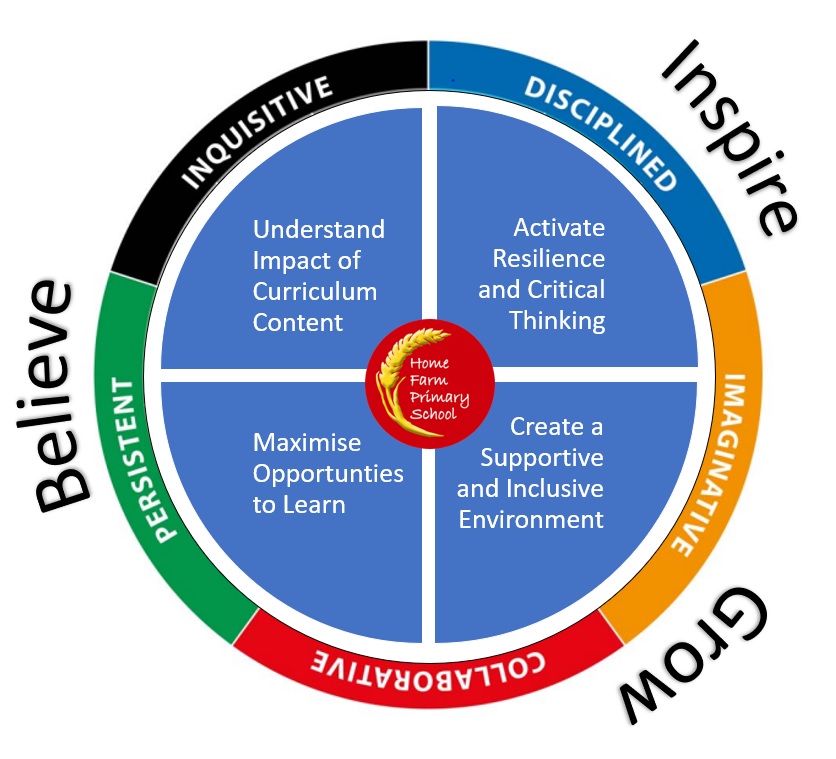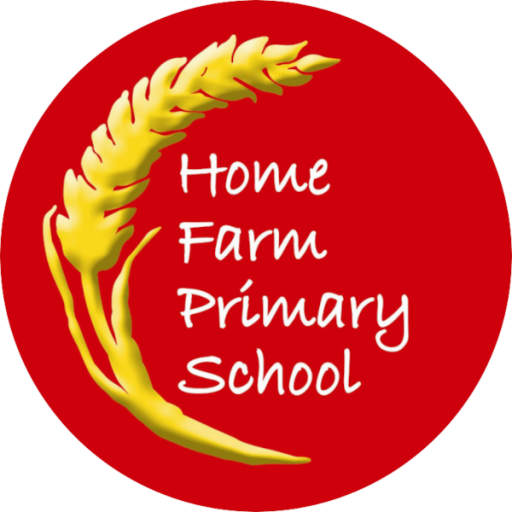Here you can find an overview of our curriculum including the drivers which underpin everything we do, and the key skills which we teach. You can find further advice on how to support your child’s learning in the parents section of our website, and you can read an overview of our curriculum policy here.
Curriculum Drivers
We have four main curriculum drivers and these underpin our approach to delivering our curriculum.

Curriculum maps
At Home Farm all teaching staff use curriculum maps to plan and describe what they will be teaching during the course of the year. Our curriculum maps show the key content that classes will cover. The maps are not static – they are sometimes revised in year to respond to the needs and interests of a particular class. You can view our curriculum maps below. Please ask your child’s class teacher or contact the school if there is anything you don’t understand or if you would like additional information.
Supporting your child with phonics
At Home Farm we use the Jolly Phonics progression of synthetic phonics teaching, utilising the two key skills of blending and segmentation.
Synthetic phonics is a method of teaching the smallest units of sound (phonemes). Children learn to make connections between the letters of written texts (graphemes) and the sounds of spoken language. Synthetic phonics teaches children how to identify all the phonemes in a word and match them to a letter in order to be able to spell correctly.
Synthetic phonics means that children are able to read a range of easily decodable words sooner
You can find more information and some practical help in this information leaflet.
Curriculum skills
You can see further information about the key skills we teach in each of the foundation subjects in the curriculum and details of how the skills develop and progress across year groups below:
Relationships, Sex and Health Education (RSHE)
In 2018, the DfE published a draft set of guidelines for their Relationships and Sex Education Policy that would become statutory in 2020.
At Home Farm we traditionally taught relationships within our Personal Social and Health Education (PSHE) lessons. With the new guidelines putting emphasis on being safe, having positive and proactive relationships and a greater emphasis in the online safety and decision making of children, we have merged our PSHE and ‘relationships’ education together. We will refer to this as Relationships Education but will also include all the existing elements from our effective PSHE curriculum.
We will continue to put a strong emphasis (in lessons and across our curriculum, particularly in Science, PE and English) in: growing and changing, healthy lifestyles, keeping safe (online and personally), making positive contributions to society, medicine and drugs, feelings and relationships.
At Home Farm we strongly feel that, beyond the academic curriculum, we have a duty to teach and encourage our pupils to become well rounded, resilient and strong minded young adults, ready for their next challenges in life and our RSC curriculum shows the skills to do this.
Religious Education
You can read more about our approach to RE in our Religious Education Policy.
You can see summaries which illustrate some of the topics covered by each class here.
